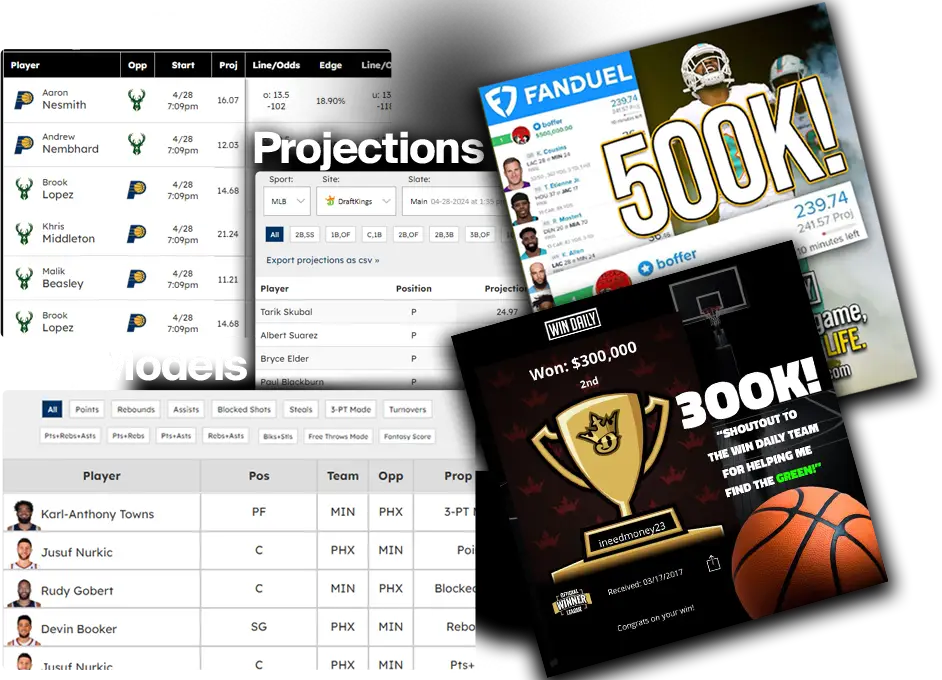NFL betting simulations are a powerful tool for predicting outcomes and gaining insights into betting markets. By using mathematical models and statistical analysis, simulations can provide a detailed view of potential game outcomes, player performances, and betting opportunities. Here’s how to effectively use NFL betting simulations to enhance your betting strategy.
What Are NFL Betting Simulations?
Computational models that simulate NFL games or seasons to predict outcomes, player performances, and other betting-related metrics. These simulations use historical data, statistical models, and algorithms to generate forecasts.
Types:
- Game Simulations: Simulate individual games to predict outcomes, point spreads, and totals.
- Season Simulations: Project team performances over the course of a season, including win totals, playoff chances, and standings.
- Player Performance Simulations: Forecast individual player stats, such as passing yards, rushing yards, or touchdowns.
How NFL Betting Simulations Work
Data Input:
- Historical Data: Includes past game results, player statistics, team performance metrics, and historical betting data.
- Current Data: Up-to-date information on team rosters, injuries, weather conditions, and recent performances.
Simulation Models:
- Monte Carlo Simulations: Use random sampling and statistical models to generate thousands of possible outcomes for games or seasons.
- Regression Models: Analyze historical data to predict future performance based on statistical relationships.
- Machine Learning Models: Utilize algorithms and data-driven approaches to improve prediction accuracy and adapt to new data.
Output:
- Predicted Outcomes: Forecasts of game results, point spreads, and totals.
- Probability Estimates: Likelihood of various outcomes, such as a team winning a game or making the playoffs.
- Performance Metrics: Projected player stats and team metrics.
How to Use NFL Betting Simulations
Step-by-Step Guide:
- Choose a Reliable Simulation Tool:
- Select Tools: Use reputable betting simulation tools or platforms, such as those offered by sports analytics companies or betting websites.
- Input Relevant Data:
- Enter Data: Provide historical data, current team information, and any other relevant variables required by the simulation tool.
- Run the Simulation:
- Generate Predictions: Run the simulation to produce forecasts for game outcomes, player performances, and betting opportunities.
- Analyze the Results:
- Review Forecasts: Examine the simulation’s predictions and probability estimates.
- Identify Value Bets: Look for discrepancies between the simulation results and the betting lines offered by sportsbooks.
- Apply Insights to Betting:
- Make Informed Bets: Use the insights from the simulation to place more informed and strategic bets.
- Monitor and Adjust: Continuously monitor the outcomes and adjust your betting strategy based on updated simulations and new data.
Benefits of Using NFL Betting Simulations
Informed Decision-Making:
- Data-Driven Insights: Simulations provide a data-driven approach to predicting outcomes, reducing reliance on subjective judgment.
Probability Estimates:
- Quantitative Analysis: Offers quantitative probability estimates for various betting scenarios, helping to identify value bets.
Risk Management:
- Risk Assessment: Helps assess potential risks and rewards by simulating different scenarios and outcomes.
Common Mistakes to Avoid
Overreliance on Simulations:
- Balance Data and Judgment: Avoid relying solely on simulations; incorporate other factors such as recent team news, injuries, and weather conditions.
Ignoring Real-Time Data:
- Update Data Regularly: Ensure that simulations use the most current data to maintain accuracy and relevance.
Misinterpreting Results:
- Understand Limitations: Recognize that simulations are probabilistic models and cannot guarantee outcomes. Use them as a tool rather than a certainty.
Examples of Using NFL Betting Simulations
Example 1:
- Game Simulation: If a simulation forecasts a high probability of a team winning by more than a certain number of points, you might consider betting on the point spread for that team.
Example 2:
- Season Simulation: If simulations show a team has a high likelihood of making the playoffs, you might place a bet on the team’s playoff futures.
Example 3:
- Player Performance: If simulations predict a quarterback will throw for a high number of yards, you might bet on the over for his passing yards prop.
Integrating Simulations with Other Tools
Combining Resources:
- Use Multiple Tools: Combine simulation results with other analytical tools, such as advanced statistics and betting trends, for a more comprehensive betting strategy.
- Leverage Expert Insights: Supplement simulation data with expert opinions and analyses to enhance your overall betting approach.
Conclusion
NFL betting simulations are a valuable resource for bettors looking to gain an edge by predicting game outcomes and player performances based on data-driven models. By understanding how simulations work, applying them effectively, and integrating their insights with other tools and data, you can make more informed betting decisions and enhance your overall betting strategy.






